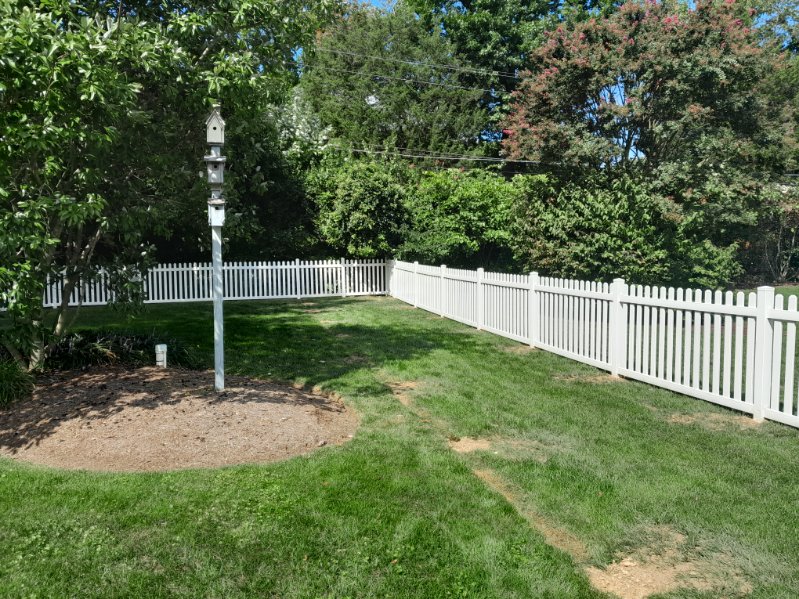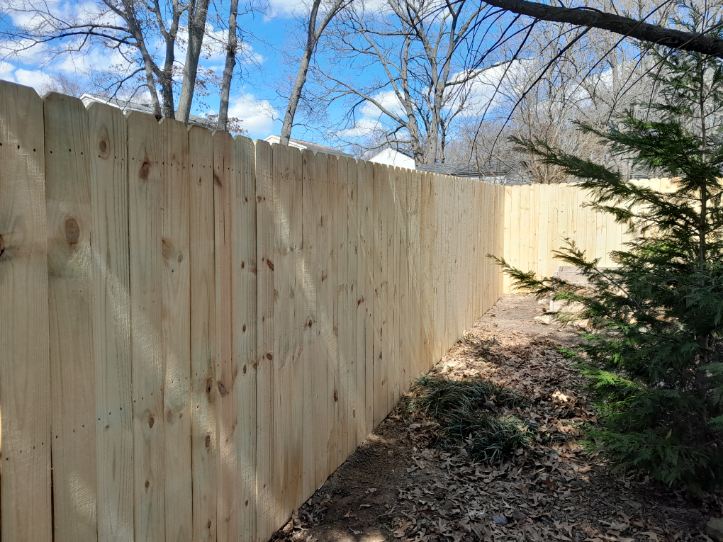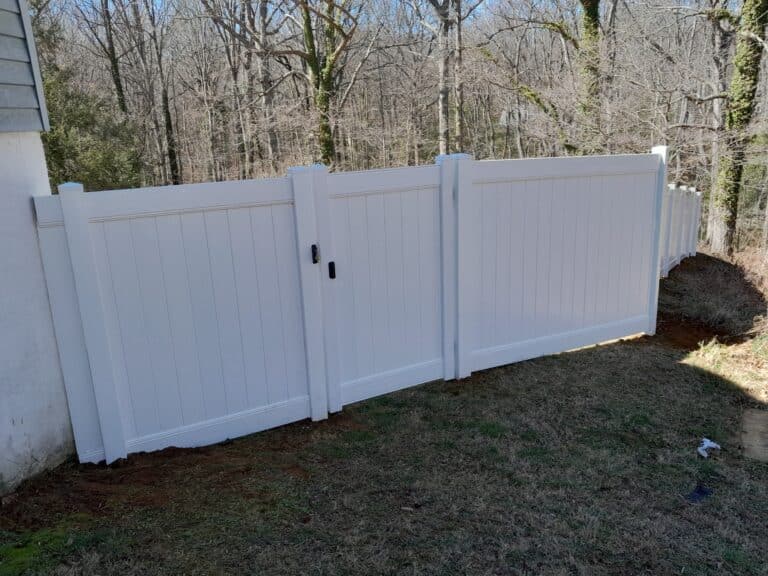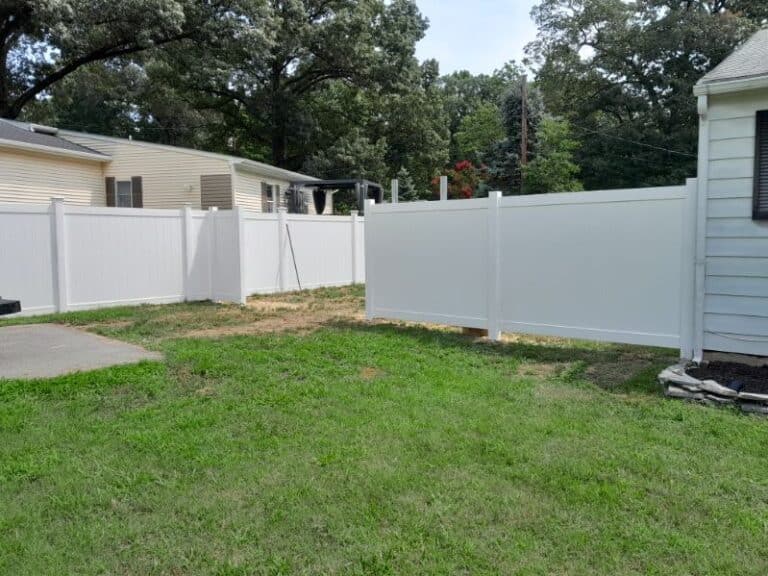Building a fence in 2025 isn’t as straightforward as it once was. Across the U.S., softwood lumber prices are up nearly 12% year-over-year, and metals like steel and aluminum are climbing, too. For homeowners, fencing projects mean higher costs and tighter deadlines. Living in Harundale, Oakwood, or any Anne Arundel neighborhood? Knowing how material costs, permits, and inspections connect will help you budget wisely. Before the first post goes in, here’s what you need to know about today’s fencing costs and forces influencing fence planning right now in Glen Burnie and in the US, in general.
The first decision: materials and national costs (2025)
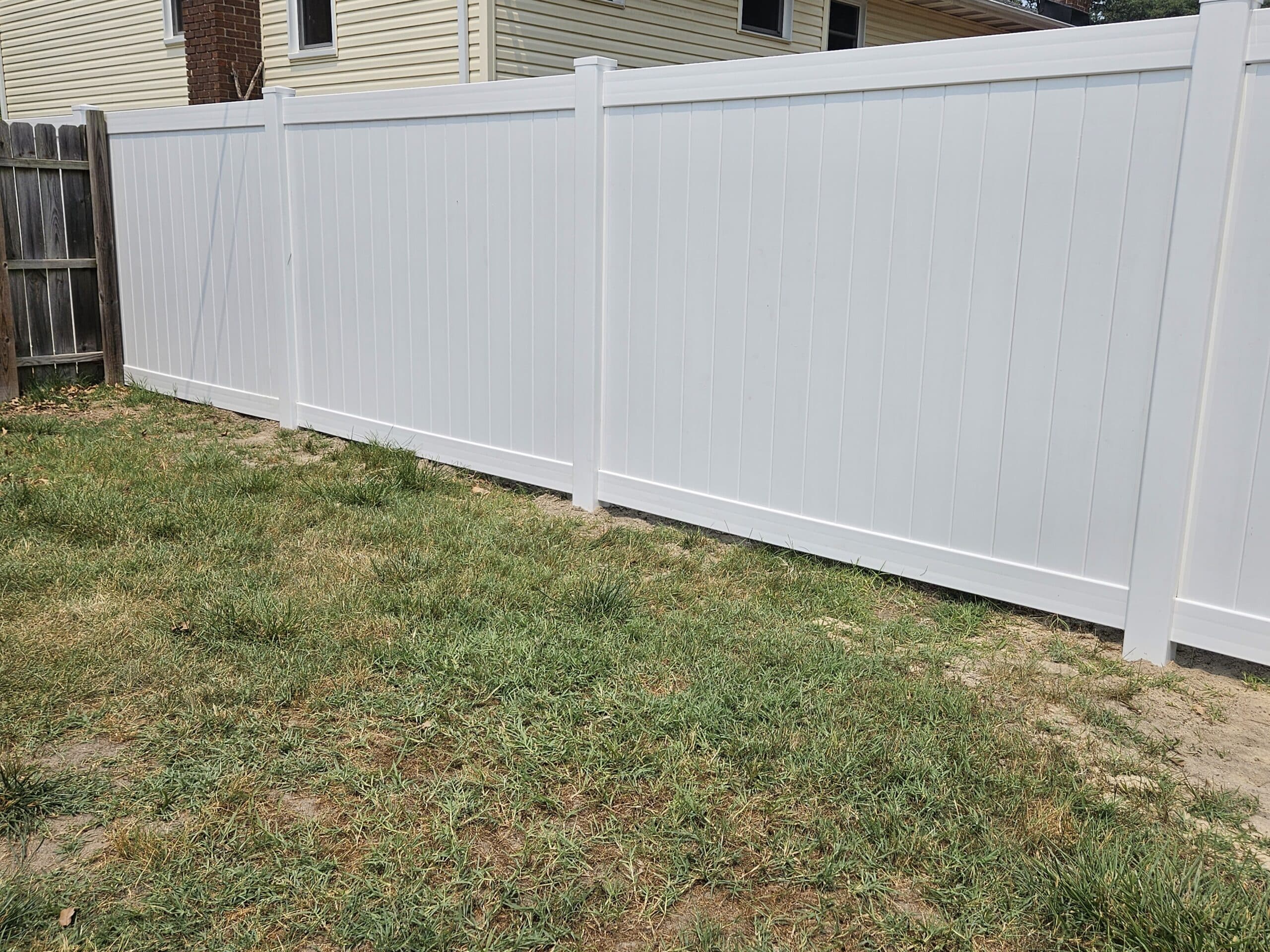
Pick materials for durability, upkeep, and purpose; then adjust for the yard. The United States Department of Agriculture Natural Resources Conservation Service (USDA NRCS) Fence Standard (Code 382) recommends durable, site-appropriate materials with the right height, spacing, and gate design planned up front. In the wooded areas by Glen Haven Memorial Park in Glen Burnie, vinyl privacy and aluminum fences work well as low-maintenance options. They stay aligned and endure humid summers and freeze-thaw cycles.
- Chain link: tough and budget‑friendly where privacy isn’t the main goal.
- Wood: classic and customizable; plan on periodic maintenance.
- Vinyl: low maintenance; confirm structural specs in the plan.
- Aluminum: clean look and no rust; plan anchoring and bracing for wind.
- Wrought iron: premium strength and style; coatings and upkeep matter.
What affects price locally? (How)
Think in two steps: a national baseline for materials and labor, then local adjustments for your Glen Burnie yard and fences. NRCS guidance states that the design must fit the site’s topography and access. So, slopes, roots, or tight staging can affect labor and timing in practice. Smaller or odd lots in Harundale need careful layout and spacing. In Point Pleasant, homes facing traffic often prefer taller privacy designs, though it’s not a code rule.
- Terrain: slopes, roots, or hard soils slow digging and increase concrete use.
- Access: Narrow side yards or limited laydown areas add handling time.
- Design: taller panels and more gates change hardware counts and bracing details.
- Removal: taking out an old fence and debris disposal are real line items—budget them early.
Why fence permits and codes matter in Glen Burnie
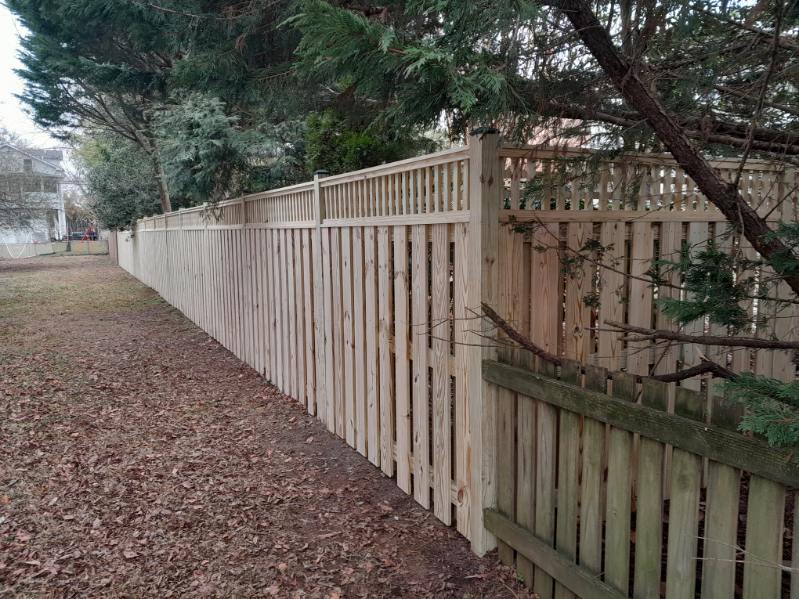
Permits exist to keep projects safe and out of public space. Anne Arundel County doesn’t allow private fences in county rights-of-way. Checking property lines and mapping fence locations helps stop encroachments early on. Because rights‑of‑way and easements can be confusing, an experienced installer can interpret the regulations applicable to Glen Burnie and keep the plan compliant. Near Marie Ave, curb space can be tight. A simple staging plan and good delivery timing help keep work smooth and respectful of the street.
Budgeting steps and hidden costs
Keep it straightforward and predictable:
- Measure all runs and mark gate locations on a simple sketch. This helps bids match reality. Then, choose a material tier that meets your privacy and maintenance goals.
- Use national price tiers as placeholders, then refine after a site visit.
- Add a small contingency for roots, rock, or access limits.
- Check current rules and timelines before ordering materials.
- Plan delivery routes and laydown areas so crews can work without rehandling materials.
Expect a few common add‑ons: extra concrete for tough holes, soil or debris haul‑off, upgraded gate hardware, and minor accessories. On narrower frontages like sections of Rose Ann Rd, early decisions about gate width and hinges avoid rework and keep scheduling on track.
Key takeaways for homeowners
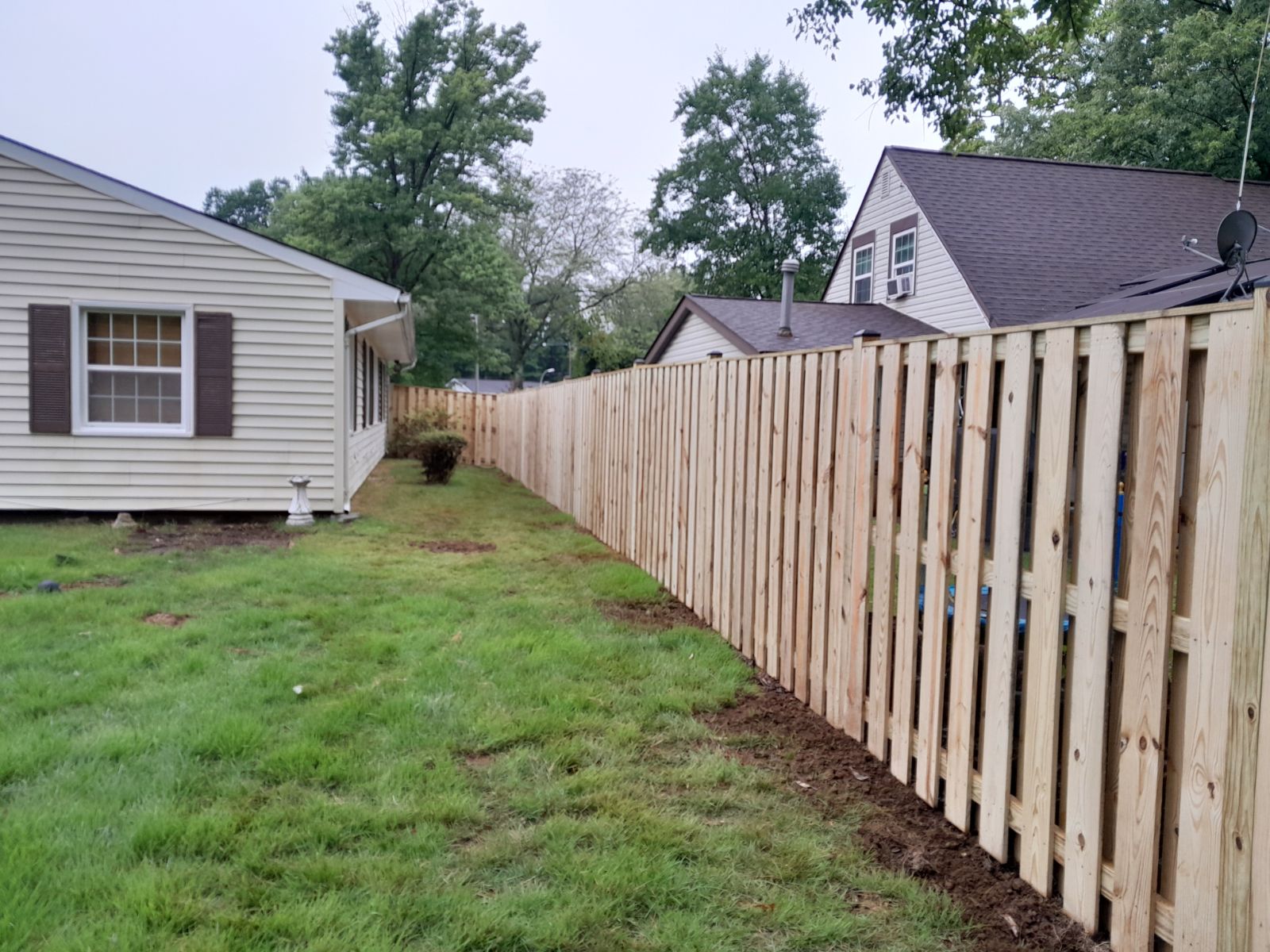
- Start with a neutral materials baseline and adjust for slope, access, and design so quotes reflect the real site.
- Verify permit requirements early to avoid rights‑of‑way issues; keep a simple site sketch on hand to speed reviews.
Frequently Asked Questions
How do national estimates translate to a Glen Burnie project?
Use them as a starting point; then a site visit, measurements, and access planning turn that estimate into an accurate, itemized bid aligned with standard fence‑planning guidance.
What’s the most affordable fence type?
It depends on the site and goals, but many budget‑first projects start with simpler, lower‑maintenance designs; the key is choosing materials that fit the yard and how the space is used.
Do I need a residential fence permit in Glen Burnie?
Check the County’s permit portal for current requirements and steps; it’s the fastest way to confirm whether height, location, or special conditions trigger a permit for the property.
How many gates should I plan for?
Match gate count and width to daily use and equipment access, then specify hardware in the plan so bids and installation align with how the space will actually work.
How can I avoid surprises during installation?
Confirm measurements, layout, and gate details in writing; plan staging and delivery windows; and include a small contingency for roots, rock, or tight access.
Ready to build with confidence
Most homeowners lean on contractors to coordinate measurements, layout, and permits because those steps keep projects safe, lawful, and on schedule. All Around Fence and Decks, LLC can translate goals into a code‑aware layout and an itemized proposal that reflects standards and local processes. All Around Fence and Decks, LLC – 8130 Ventnor Road, Pasadena, MD 21122 – (443) 838‑9374

